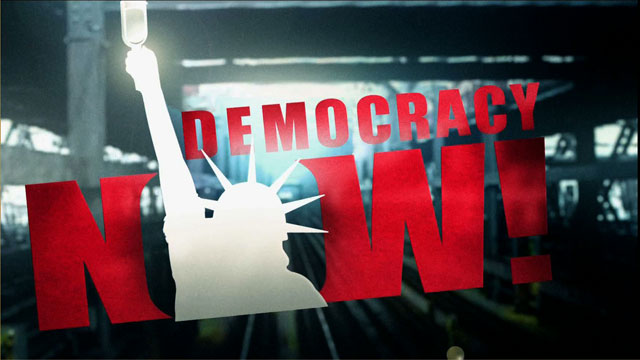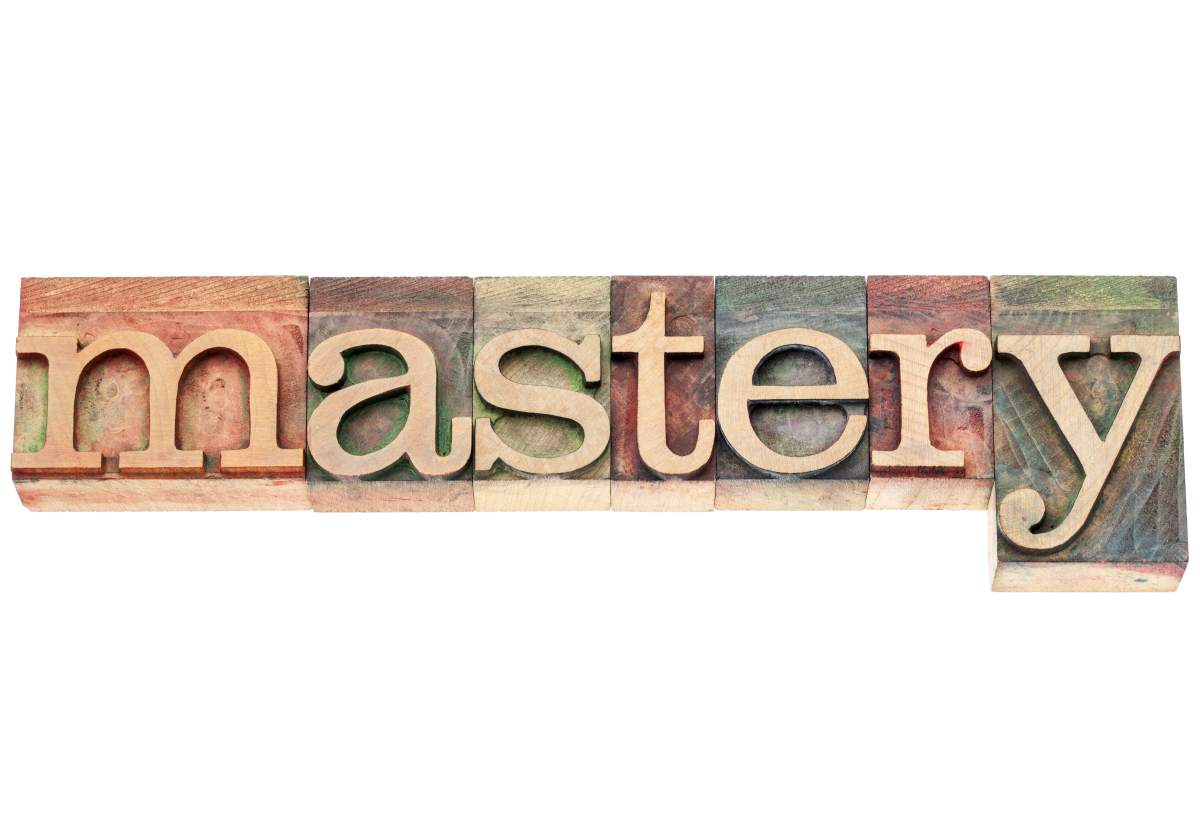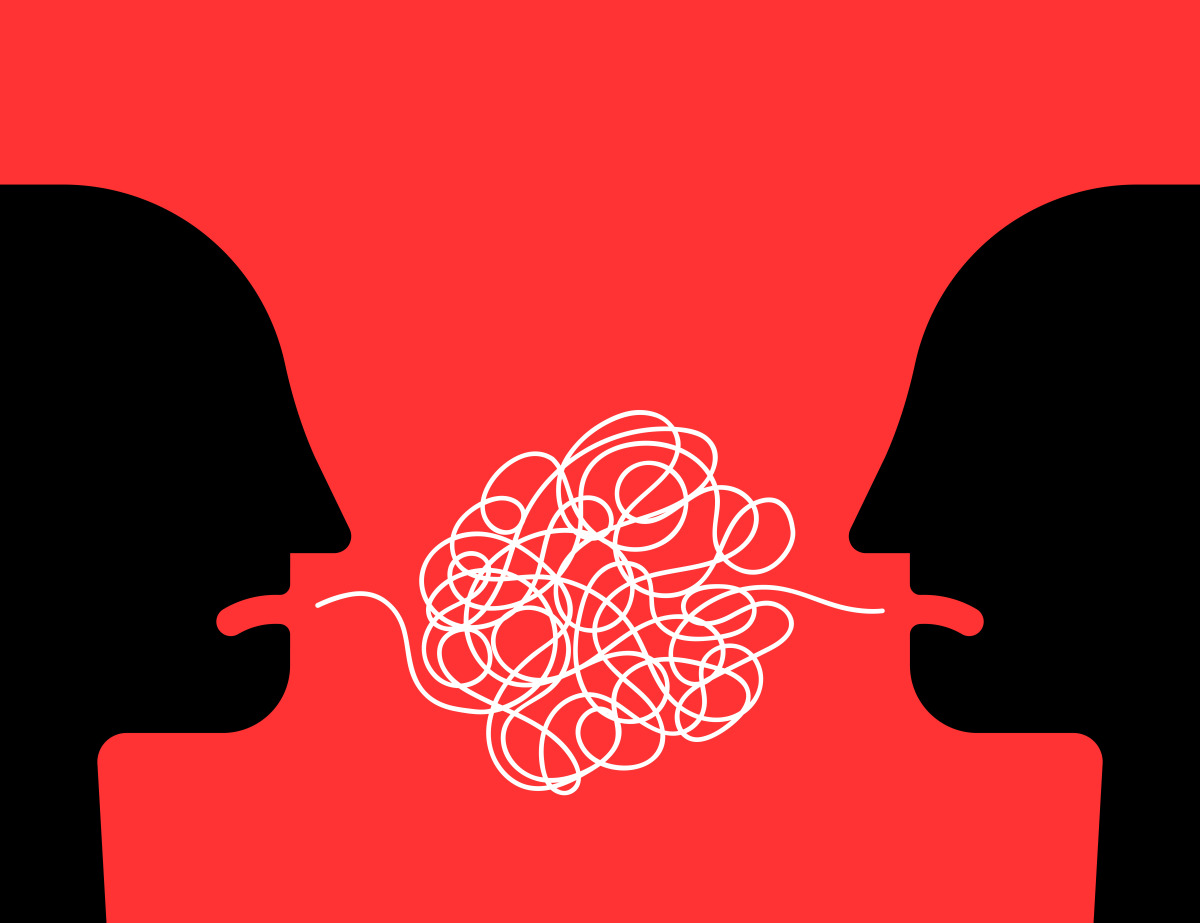Eine praktische Anleitung am Beispiel der Weltsprache
„Der Bär bringt eine Ente zur Welt“, „Der Ingenieur ist im Kühlschrank“ oder wie wäre es mit „Die Zwiebel frisst das Mädchen.“ Das sind echte Beispiele aus Duolingo-Übersetzungsübungen. Duolingo ist eines der weltweit beliebtesten Lernportale. Auffallend ist, dass die Plattform unter der gefälligen, an ein Computerspiel erinnernden Benutzeroberfläche auf die älteste Methode des Sprachlernens zurückgreift: die Grammatik-Übersetzungsmethode. Diese Methode, für die Ausbildung von Übersetzern weiterhin unverzichtbar, war bereits im Mittelalter populär.
Wir wissen, dass Spracherwerb auf diese Weise nicht gut funktioniert. Spracherwerb ist ein unbewusster Prozess, er findet statt, wenn wir Botschaften verstehen. Der traditionelle Ansatz, immer noch die Methode der Wahl für die meisten Schulen und Plattformen, ist ineffektiv, weil der Schwerpunkt auf der Form und nicht auf dem Inhalt liegt. Die Betonung liegt auf dem „Wie“ und nicht auf dem „Was“, auf Struktur und Grammatik und nicht auf Sinn und
Bedeutung, auf interessanten Ideen und wertvollen Informationen.
So gelangt man zu „Die Zwiebel isst ein Mädchen“ und den anderen bizarren Beispielen. Das soll nicht heißen, dass formbasierte Ansätze überhaupt nicht funktionieren. Für Anfänger funktioniert jede Lernmethode bis zu einem gewissen Grad. Dazu gehört auch die Grammatik-Übersetzungsmethode, die heutzutage im Sprachunterricht verpönt ist, aber in der digitalen Welt eine Renaissance erlebt.
Zur Ehrenrettung von Duolingo lässt sich sagen, dass es tatsächlich dabei hilft, sich Wörter einzuprägen, wenn man sie mit skurrilen Bildern verknüpft. Der Bär bringt eine Ente zur Welt. Auf Spanisch hieße das: „El oso esta pariendo un pato.“ Lesen Sie den Satz einmal laut. Jetzt schließen Sie die Augen, stellen sich bildlich vor wie ein Bär eine Ente zur Welt bringt und wiederholen Sie den Satz. Die Wahrscheinlichkeit, dass Sie sich zumindest die spanischen Worte für Bär, „oso“ und Ente, „pato“ eine Zeitlang in Erinnerung behalten ist nun wesentlich höher, als wenn Sie den Satz einfach nur übersetzt
hätten.
Nicht lernen, erwerben
Bevor ich darauf komme, was zu tun ist, um eine Sprache wirklich zu beherrschen, ist es notwendig, den Unterschied zwischen Sprachlernen und Spracherwerb deutlich zu machen. Sprachlernen ist was während des Sprachunterrichts geschieht: Rollenspiele und Sprechübungen aller Art, Grammatikübungen und Vokabeltraining und Übersetzungsübungen wie z.B. auf Duolingo. Auch das Erstellen und Auswendiglernen von Vokabellisten gehört dazu.
Spracherwerb ist was geschieht, wenn wir Botschaften in der Zielsprache verstehen, wenn wir uns auf das „Was“ und nicht auf das „Wie“ konzentrieren. Es ist der unbewusste, implizite Prozess des Erwerbs von Wortschatz und Struktur. Spracherwerb ist was geschieht, wenn Kinder ihre Muttersprache lernen. Auch Erwachsene haben eine Fremdsprache erworben, nicht gelernt, wenn es ihnen gelingt, sie souverän zu beherrschen.
Diese Unterscheidung ist aus verschiedenen Gründen von großer Bedeutung: Es ist möglich, ein wenig von einer Sprache auf
viele verschiedene Arten zu lernen. Eine Sprache zu meistern, sie souverän oder „verhandlungssicher“ zu beherrschen ist nur
über einen ausgedehnten Prozess des Spracherwerbs möglich. Der Prozess des Spracherwerbs hört nie auf, denn wir lernen ja auch in unserer Muttersprache immer neue Wörter dazu.
Es geht nicht um ein „Entweder /Oder“ zwischen explizitem Sprachlernen und impliziten Spracherwerb. Ohne eine Basis in der Zielsprache, die über explizites Sprachlernen gelegt wird, ist für erwachsene Lerner der Schritt zum impliziten Spracherwerb nicht möglich. Ohne den darauffolgenden Prozess des Spracherwerbs ist eine Beherrschung der Zielsprache auf hohem Niveau ebenso unmöglich. Entscheidend ist, sich nicht puristisch auf einen Ansatz zu versteifen. Auch Anfänger können unter bestimmten Umständen implizit lernen und Fortgeschrittene profitieren vom expliziten Sprachlernen, beispielsweise von punktuellen Grammatikerklärungen und Ubüngen, sowie dem Nachschlagen von Wörtern, die sich nicht eindeutig aus dem Kontext erschliessen.
Wichtig ist, auf dem Weg zu einem höheren Niveau der Sprachkompetenz die Betonung zunehmend weniger auf das „Wie“ und mehr auf das „Was“ zu legen. Wenn die Inhalte interessant sind und dazu anregen, sich weiter mit dem Thema zu beschäftigen, wenn die Kommunikation sinnvoll ist und Sprache als Werkzeug der Vermittlung dient, dann werden sie abgespeichert, dann „bleiben sie hängen.“ Desto formbasierter, verwässerter und langweiliger die Inhalte, desto weniger wird dieses Ziel erreicht. Um eine Sprache auf hohem Niveau zu beherrschen müssen eine Vielzahl von Informationen abgespeichert werden; nicht nur eine große Anzahl von Wörtern, sondern auch Nuancen der Bedeutung und Verwendung in unterschiedlichen Situationen.
Um zu veranschaulichen, was ich damit meine, schauen wir uns die Wortanzahl der englischen Sprache an: Das Standardwörterbuch „Webster’s Dictionary“ kommt auf 470.000 Einträge. Das ist eine noch eher geringe Zahl, es gibt andere Schätzungen, die regionale Dialekte, Slang und Fachjargons miteinbeziehen. Dann ist man schnell bei über einer Million Wörtern. Englisch ist – und zwar mit großem Abstand – die Sprache mit den meisten Wörtern.
Zu viel zu lernen
Niemand kennt oder verwendet natürlich all diese Wörter. Tests zeigen, dass Muttersprachler zwischen 20 000 und 35 000 Tausend Wörter kennen und verwenden. Setzen wir für einen Zweitsprachler, der Englisch auf hohem Niveau beherrschen will, ein konservatives Ziel: 18 000 Wörter. Das Auswendiglernen der 18 000 Wörter wäre nur ein Ziel, das der Lerner erreichen muss.
Er müsste auch den angemessenen Gebrauch der Wörter erlernen und die Unterschiede im Sprachniveau, z.B. formell oder informell, verstehen. Wann ist es angebracht, „beipflichten“ statt „zustimmen“ zu sagen? Welches ist das richtige Wort, wenn Sie den Ausdruck ironisch verwenden möchten? Ganz zu schweigen von Grammatik, Rechtschreibung und Interpunktion, den Unterschieden zwischen britischem und amerikanischem Englisch, den kulturellen Bezügen und so weiter und so fort. Für den Durchschnittsmenschen ist es einfach unmöglich, all dies bewusst zu lernen. Und es geschieht auch nie.
Wenn Menschen eine Fremdsprache auf einem hohen Niveau beherrschen, dann deshalb, weil sie sie über einen längeren
Zeitraum erfolgreich erworben haben. Sie haben viel gehört und gelesen, sie haben eine große Zahl von Botschaften in der Zielsprache verstanden. Oder, um den Fachjargon zu verwenden: Sie waren über einen längeren Zeitraum einem hohen Volumen an „verständlichem Input“ ausgesetzt.
Das Erkennen von Pornographie
Was genau versteht man unter „verständlichem Input“? In der Angewandten Linguistik wird seit Jahren darüber diskutiert;
wir halten uns einfach an die berühmte Definition, die ein britischer Richter angeblich für Pornographie vorgeschlagen hat: Sie werden es wissen, wenn Sie es sehen. Um ein Beispiel zu geben: Wenn Sie sich auf der Stufe C1 finden, also schon fortgeschrittene Kenntnisse haben, stellt eine wissenschaftliche Arbeit zum Thema Psychologie, die Sie in Ihrer Muttersprache nur mühsam verstehen, keinen verständlichen Input dar. Ein klar geschriebenes populärwissenschaftliches
Buch zum gleichen Thema, das keine besonderen Vorkenntnisse voraussetzt, schon.
Aber lernt man eine Sprache nicht durch sprechen? Nein. Was man lernt, indem man die Zielsprache spricht, ist vor allem die richtigen Laute zu formen. Man gewöhnt sich daran, die Sprache zu produzieren, man verfestigt schon Erworbenes und kann mit neu Erworbenem experimentieren. Vor allem aber: Man gewöhnt sich an das Gefühl, sich in einer anderen Sprache auszudrücken. Für die meisten Erwachsenen ist das vor allem zu Anfang unangenehm und erzeugt Unsicherheit. Die Intensität dieses Gefühls ist von Mensch zu Mensch sehr verschieden und stellt besonders Perfektionisten vor große Probleme.
Trinken zum Reden
Sie glauben mir nicht? Versuchen Sie, eine Fremdsprache zu sprechen, nachdem Sie das konsumiert haben, was Sie für verträgliche Menge von Alkohol halten. (Auch hier werden die Definitionen von Mensch zu Mensch sehr unterschiedlich sein). Sie werden feststellen, dass es besser klappt. Wie kommt das? Weil Alkohol Hemmungen senkt und Unsicherheit abmildert. Deshalb trinken wir ihn und nennen ihn ein soziales Schmiermittel. Es versteht sich von selbst, dass eine große Menge Alkohol die gegenteilige Wirkung erzielt.
Eines der Hauptprobleme beim tatsächlichen Gebrauch einer Fremdsprache hat also mehr mit Psychologie als mit Linguistik
zu tun. Je stärker Ihren perfektionistischen Tendenzen sind, desto weniger Sie in der Lage sind, sich Fehler zu verzeihen, desto schwieriger wird es für Sie werden, eine Fremdsprache tatsächlich fließend zu beherrschen. Hier kann die intensive Beschäftigung mit einer Fremdsprache einen wichtigen Beitrag zur persönlichen Entwicklung leisten: Der notwendigerweise holprige, fehlerreiche Prozess beim Meistern einer Fremdsprache dient dann als Weg sich seinen irrationalen Ängsten zu stellen.
Es ist meist Angst vor Ablehnung und Ausgrenzung, die dem Perfektionismus zugrunde liegt. Das Erlernen einer Sprache
kann Ihnen dabei behilflich sein, sich mit der einfachen Tatsache der menschlichen Fehlbarkeit anzufreunden. Der Wiener Psychologe Raphael Bonelli hat dafür den Begriff „Imperfektionstoleranz“ geprägt“, eine wertvolle Eigenschaft für das notorisch fehleranfällige Wesen Mensch. Bei „L&S“ nutzen wir konkrete Aufgaben aus dem Kommunikationstraining, wie zum Beispiel unser Präsentationstraining „Training for TED“, um unseren Trainees zu helfen, sich an schwierige Situationen zu gewöhnen und trotz Nervösität handlungsfähig zu bleiben.
Drei Schritte
1) Lassen Sie die Anfängerstufe, A 1 bis B 1, so schnell wie möglich hinter sich. Wenn Sie eine Fremdsprache tatsächlich beherrschen wollen oder müssen, nehmen Sie sich die Zeit für Intensivkurse. Ideal wäre natürlich, wenn Sie die Möglichkeit hätten, die Kurse über einen längeren Zeitraum zu besuchen. Wenn das nicht möglich sein sollte, gilt: Viel hilft viel. Desto länger die Dauer des Kurses, desto besser. Anfänger haben eine steile Lernkurve und Ihr Ziel ist, das reine Sprachlernen schnell hinter sich zu lassen.
Die einfache Faustregel: Desto ähnlicher die Zielsprache der Muttersprache ist, desto schneller gelingt der Schritt vom
Sprachlernen zum Spracherwerb. Wenn Sie sich für eine Sprachschule entscheiden, bitten Sie um die Teilnahme an einem
Probeunterricht. Wenn der Unterricht stark grammatiklastig ist und die meisten Sprechanteile bei der Lehrkraft liegen, gehen Sie woanders hin. Glauben Sie nicht, dass das stille Leiden sich am Ende auszahlen wird. Sie müssen sich so schnell wie möglich mit Aussprache und Sprachmelodie Ihrer Zielsprache vertraut machen.
Wenn die Lehrkraft sich weigert, Zusammenhänge zu erklären, stattdessen die Antworten immer den Teilnehmern entlocken
möchte und die Gruppe zwanghaft zu Paaren zusammensetzt, gehen Sie woanders hin. Natürlich sollte der Großteil des Unterrichts in der Zielsprache stattfinden, aber wenn eine gemeinsame Sprache existiert, spricht nichts dagegen, den Teilnehmern das Leben mit einer schnellen Erklärung oder Übersetzung zu erleichtern. Gerade ältere Teilnehmer wissen das zu schätzen.
Die „kommunikative Methode“ ist das aktuelle Dogma des Sprachunterrichts. Sie ist nützlich und sollte Teil jedes Sprachkurses sein, aber viele Lehrer übertreiben es damit. Wenn Sie allerdings nur die Wahl zwischen kommunikativen Dogma und stillem Leiden unter Grammatikfolter haben, entscheiden Sie sich für das kommunikative Dogma. Idealerweise sollte es ein Gleichgewicht zwischen Interaktion, Paararbeit, Übung und Erklärung und strukturellem Überblick geben.
Achten Sie darauf, dass die Schule im 21. Jahrhundert angekommen ist und authentisches Video- und Audiomaterial verwendet und nicht nur CD-Player, Lehrbücher und Fotokopien.
Wenn Sie nicht an einem Intensivkurs teilnehmen können, bleibt Ihnen meist nur das allgegenwärtige 90-Minuten-Einmal-die-Woche-Format. Ergänzen Sie es mit viel einfachem Video-, Audio- und Lesematerial. Seien Sie kein Snob. Sehen Sie sich Kindergeschichten und Zeichentrickfilme in der Zielsprache an, lesen Sie illustrierte Bücher und Comics. Bilder sind sehr hilfreich und Sie werden merken, dass Sie sich wesentlich besser an die Bedeutung eines Wortes erinnern, wenn Sie ein Bild vor Augen haben. Beschäftigen Sie sich oft und regelmäßig mit dieser Art von Material. Zehn Minuten am Tag sind zu wenig, wenn Sie schnell Fortschritte erzielen wollen.
2) Wenn Sie das Niveau B1 erreicht haben, experimentieren Sie mit vielen Arten von verständlichem Input. Auf dem B1 Niveau sind kurze Präsentationen, Bücher in einfacher Sprache, Comics, Graphic Novels, Erklärvideos und Geschichten auf YouTube der richtige Weg. Probieren Sie auch Filme und Shows auf Netflix aus, achten Sie nur darauf, dass Sie Untertitel in der Zielsprache haben. Verwenden Sie keine Untertitel in Ihrer Muttersprache.
Generell gilt: Wenn Sie jedes Wort verstehen, ist das Material zu leicht. Finden Sie ein Verhältnis von bekanntem und unbekanntem Vokabular, mit dem Sie sich wohl fühlen. Das richtige Maß wird individuell verschieden sein, aber im Allgemeinen müssen Sie Ihre Fertigkeit trainieren, Wörter aus dem Kontext heraus zu verstehen und weniger abhängig von Übersetzungen und Wörterbüchern zu sein.
Nachschlagen dürfen und sollen Sie natürlich, aber nicht reflexhaft, sobald Sie ein Wort nicht kennen. Streichen Sie sich das Wort an und versuchen Sie, es aus dem Kontext zu verstehen. Wenn es ein
kürzerer Text ist, lesen Sie ihn zu Ende, bevor Sie nachschlagen. Bei längeren Text oder Büchern können Sie seitenweise oder kapitelweise vorgehen. Zum Nachschlagen nutzen Sie am besten dieses Online-Lexikon: www.linguee.com. Der große Vorteil von Linguee ist, dass Sie neben der reinen Übersetzung immer auch eine Vielzahl Sätzen sehen, in denen das Wort verwendet wird. Manchmal kann es sinnvoll sein, sich eine wortwörtliche Übersetzung von Sätzen oder ganzen Passagen anzuschauen, nutzen Sie dafür dieses Tool: //www.deepl.com/en/translator.
So unterstützen Sie auch die heimische Wirtschaft: Das Kölner Unternehmen ist eines der wenigen deutschen KI-Startups, das Google in seine Schranken weist. Wo wir gerade bei Nachschlagen und Übersetzen sind: Die Konzentration auf Sprachaneignung bedeutet nicht, dass Sie auf Grammatikerklärungen und Übungen komplett verzichten müssen. Es kann hilfreich sein und Sicherheit geben, sich einzelne Themen gezielt anzuschauen. Eine gute Möglichkeit, das online, kostenlos und in deutscher Sprache zu tun, finden Sie hier: https://www.ego4u.de/
Wenn möglich, suchen Sie ruhig das Gespräch mit Muttersprachlern oder bilden Tandems, aber denken Sie nicht, dies sei der wichtigste Teil Ihres Spracherwerbs. Es wird Ihnen helfen, sich in der Sprache wohler zu fühlen, und es wird Ihnen helfen, Imperfektionstoleranz aufzubauen. Auf dem Niveau B1 kann die Interaktion mit Muttersprachlern jedoch schnell überwältigend und frustrierend werden. Lassen Sie sich nicht entmutigen. Sie sind dabei, sich die Zielsprache anzueignen, in Ihrem eigenen Tempo, ohne Stress.
Vertrauen Sie auf den Erfolg des Prozesses. Wenn für Ihre Zielsprache verfügbar, machen Sie hin und wieder einen der Einstufungstest, die viele Sprachschulen online anbieten. So überprüfen Sie Ihre Fortschritte und rufen sich Struktur und Vokabeln ins Gedächtnis. Betrachten Sie Tests generell besser als Lernhilfen, nicht als Bewertungsinstrumente. Hier ist der Link zu unserem Einstufungstest: https://www.language-and-skills.com/home/placement/
3) Sobald Sie das Niveau B 2 erreicht haben, wenden Sie sich spannenderem Material zu. Halten Sie sich von Sprachlernmaterial fern. Das meiste ist verwässert, langweilig und verbirgt den Fokus auf Form hinter eindrucksvoll klingenden Markennamen wie „Financial Times“ oder „Economist“. Lassen Sie sich nicht täuschen. Dahinter verbirgt sich der altbekannte Mix aus Lückenfülltexten, Grammatikhäppchen und Verständnisfragen. Filme und Serien in der
Originalsprache sind besser, wenn möglich Untertitel in der Originalsprache zuschalten.
Hier hätten wir also einen Teil der Lösung für den langen Pandemiewinter: Binging ohne schlechtes Gewissen. Denken Sie
allerdings daran, dass auch beim impliziten Lernen von Vokabeln die Verarbeitungstiefe eine Rolle spielt. Je aufmerksamer Sie sind, je mehr das Material Sie zur Reflexion anregt und sich mit schon bekannten Informationen abgleichen und verknüpfen lässt, desto besser werden Sie es im Gedächtnis behalten. Bei Netflix also auch den Dokumentationen mal eine Chance geben.
Generell bietet das Internet bietet Ihnen die Möglichkeit, die englische Sprache zu erwerben ohne den Fuß vor die Tür zu setzen. Das Netz bieten tausende Stunden von hochwertigem häufig kostenlos verfügbarem Material. Beginnen Sie beispielsweise mit den TED-Präsentationen unter www.ted.com . Schauen Sie sich die ersten paar Minuten möglichst vieler Vorträge an und finden Sie Themen, für die Sie sich interessieren. Falls Sie schon auf dem C 1 Level sind, bieten sich die Autorenvorträge bei Google an: https://talksat.withgoogle.com/
Wenn ein Referent versucht, Ihnen sein Buch zu verkaufen und Ihnen das Thema gefällt, bestellen Sie das Buch und lesen es. Wenn Sie nicht so hoch einsteigen möchten, schauen Sie, ob sie online eine Zusammenfassung finden, beispielsweise auf www.blinkist.com/. Oder Sie suchen in einer englischsprachigen Zeitung nach einer Rezension. Der britische Guardian, https://www.theguardian.com/ bietet sich an, da er bisher auf eine Bezahlschranke verzichtet.
Die Macht der MOOCs
Eine noch zu wenig für die Sprachaneignung genutzte Plattform sind die MOOCs. MOOCs, kurz für „Massive Open Online
Courses“, sind Online-Kurse auf akademischem Niveau. Die MOOCs bieten ein extrem breites Spektrum von Themen, von Buddhismus über Wertpapierhandel bis zu Künstlicher Intelligenz. Teilweise werden die Kurse aufwendig für das Videoformat produziert, teilweise sind es simple Mittschnitte aus Seminarräumen. Eine Vielzahl der Kurse ist ständig verfügbar und lassen sich kostenlos nutzen.
Einige müssen in einem bestimmten Zeitraum absolviert werden, bieten die Möglichkeit mit den Lehrenden in Kontakt zu
treten und bei erfolgreichen Abschluss den Erwerb eines Zertifikats von renommierten amerikanischen und englischen
Universitäten. Für die Nutzung dieser Kurse wird normalerweise eine moderate Gebühr, zwischen 40 und 80 Dollar verlangt.
Schauen Sie sich „Coursera“ :/www.coursera.org/ , „edX“ : /www.edx.org/ und „Future Learn“ /www.futurelearn.com/ an.
Viele MOOCs Videos sind mittlerweile auch bei „YouTube“ gelandet. Die MOOCs haben das Versprechen, die akademische
Bildung komplett zu revolutionieren, nicht eingelöst. Die angeleitete Diskussion in der Lerngruppe wird uns erhalten bleiben, und sei es nur, weil das gemeinsame Lernen eine schöne und bereichernde Erfahrung ist. Auf jeden Fall sind MOOCs aber ein fantastischer Weg, zwei Fliegen mit einer Klappe zu schlagen: Sich eine Sprache auf hohem Niveau anzueignen und dabei etwas Neues zu lernen.
Häufig werden Romane empfohlen, dieser Empfehlung stimme ich allerdings nur eingeschränkt zu. Wirklich gut funktionieren Romane zum Spracherwerb nur für Literaturbegeisterte. Romane sind sprachliche Kunstwerke, sie sind nicht geschrieben, um gut verständlich zu sein.
Für viele Erwachsene funktionieren populärwissenschaftliche Bücher besser. Im amerikanischen Wissenschaftsbetrieb gilt das Schreiben von erfolgreichen Büchern für gebildete Laien als Auszeichnung und
es gibt eine Vielzahl lesenswerter Werke. Viele unserer Kunden haben sich für „Behavioral Economics“, d.h. Verhaltensökonomik begeistern können. Hinter diesem sperrigen Begriff verbirgt sich eine spannende Synthese aus Wirtschafswissenschaft und experimenteller Psychologie, die versucht, der faszinierenden Frage nach der Natur des Menschen auf den Grund zu gehen. Ein guter Einstieg ins Thema sind
die Bücher und Videos des akademischen Superstars Dan Ariely: https://danariely.com/
Suchen Sie den Kontakt mit Muttersprachlern, idealerweise in Situationen, wo es um ein Thema geht, über das es sich zu
sprechen lohnt und die Sprache als Werkzeug dient. Das ist häufig das Problem mit Tandems; sie werden schnell langweilig
und verlaufen im Sande. Als Alternative zu Tandems bietet sich „Inter Nations“ an: www.internations.org Inter Nations ist ein erfolgreiches deutsches Startup mit Sitz in München und hat eine weltweit aktive Plattform für Expats aufgebaut. Für die Sprachaneignung eignen sich besonders die „Activity Groups“ Eine (virtuelle?) Weinprobe auf Englisch, zum Beispiel, ist unter dem eingangs erwähnten psychologischen Gesichtspunkt das ideale Event für Sprachaneignung und Sprechtraining.
Theoretisch können Sie eine Sprache alleine meistern, so wie Sie auch ohne Fitnessstudio und Trainer in Form kommen können. Das Hauptproblem, sowohl beim Fitwerden als auch beim Beherrschen einer Sprache, ist die guten Vorsätze einzuhalten und den Absichten Taten folgen zu lassen, regelmäßig und langfristig. Die Zusammenarbeit mit einer guten Sprachschule hilft, denn die regelmäßigen Treffen und die Beziehung zum Trainer machen es leichter, den inneren Schweinehund an die Leine zu nehmen.
Spracherwerb funktioniert. Die besten Sprachschulen bauen ihre Methode auf dieser Einsicht auf und gute Trainer tun mehr
als nur einmal die Woche einen angenehmen Plausch zu moderieren und hin und wieder Grammatik zu korrigieren. Gute
Trainer werden Sie auf interessantes Material hinweisen und es mit Ihnen diskutieren. Sie werden Ihren Horizont erweitern und bereit sein, von Ihnen zu lernen. Wenn Sie auf der Suche nach einem guten Trainer sind, besuchen Sie uns unter : www.language-and-skills.eu
Links






